TESOL Goes to Capitol Hill for 2013 Advocacy & Policy Summit
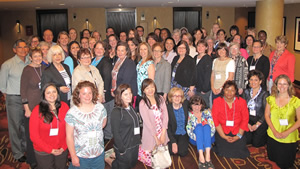
On 16–18 June, 2013 more than 50 members of TESOL International Association assembled in Washington, DC for the 2013 TESOL Advocacy & Policy Summit (formerly TESOL Advocacy Day). Now in its 8th year, this unique program featured a full a day of issue briefings and activities centered around education legislation and advocacy, followed by a day of visits to Congressional offices on Capitol Hill. By the end of the event, TESOL members—including representatives from more than 20 U.S. affiliates—had visited the offices of approximately 100 representatives and Senators.
Contrasting with advocacy programs of the past that typically focused on a single piece of legislation, the new format of the TESOL Advocacy & Policy Summit had a broader policy agenda. The program of the Summit was essentially divided into two parts: policy and advocacy. The goal was to not only learn more about federal policy issues impacting ESL and ELLs, but to provide an interactive learning experience on elements of advocacy.
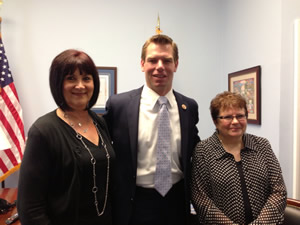
TESOL members with CA Representative Eric Swalwell
To fully prepare for the Summit, participants were required to prepare in advance. For example, participants had to set up their own individual meetings with their Congressional representatives. To assist with this, TESOL International Association provided directions and guidance, as well as the list of specific representatives and senators to contact. Participants were also sent talking points and background information on key issues so that they could begin to familiarize themselves with the issues in advance. To help make their Congressional meetings more effective, participants were also encouraged to find examples from their own programs to illustrate the talking points.
For the policy portion of the Summit, participants were provided an overview of legislative issues, followed with briefings from experts on key issues and policies. Adam Fernandez, Legislative Associate with the Mexican American Legal Defense and Education Fund (MALDEF) and cochair of the Hispanic Education Coalition (HEC), led a discussion on some of the issues in immigration reform and in reauthorization of the Elementary and Secondary Education Act (ESEA) impacting ELLs. This was followed by a panel featuring Joanne Urrutia from the Office of English Language Acquisition (OELA) and Supreet Anand of the Title III Group at the U.S. Department of Education, who copresented on the activities of their offices. To close out the policy portion, Debra Suarez from the Office of Vocational and Adult Education (OVAE) at the U.S. Department of Education provided an update on new initiatives for adult ESL and adult education.
Following these briefings, the Summit shifted its focus to advocacy with a series of activities to help participants learn more about the advocacy process and prepare for their meetings with members of Congress. Participants had a chance to meet in small groups to discuss various issues they faced locally, and to share tips for and ideas about meeting with legislators. To help prepare for their meetings, participants attending from the same state were teamed up so they could meet with the legislators in small groups.
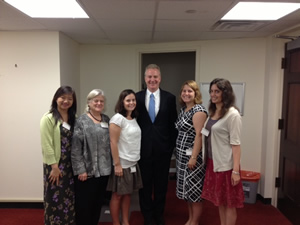
TESOL members with MD Representative Chris Van Hollen
“It was an awesome experience!” shared Margie Wilson, a first-time attendee from TexTESOL V. “I learned the value of acting as a team with other affiliates across my state. It was very rewarding. I plan to become more active in TESOL International Association as a result.”
On 18 June, participants went to Capitol Hill to have meetings with members of Congress and staff. While many had two or three meetings scheduled, some had as many as five or more throughout the day. Participants spent the day in and around the U.S. Capitol complex, meeting with legislators and their staff to discuss the issues the participants face as ESL educators. Most focused on the impact of sequestration, while some addressed related issues in their district.
Bette Empol, a first-time attendee representing California TESOL, really enjoyed the experience of going to Capitol Hill. “It was great to have the experience of going into the Congressional office buildings to meet with legislators and their staffs. I learned that the legislative staffers do listen and are very attentive, and saw the importance of reaching out to them—it definitely makes an impact.”
At the end of the day, the participants reassembled to share their experiences and debrief. It was interesting to hear what other people experienced on their visit. Some discussed individual meeting experiences and information they had learned from Congressional staff about pending legislation, while others talked about their own experiences on Capitol Hill. Overall, all of the participants agreed this event was a very positive experience for them and for TESOL International Association.
Lori Dodson, who returned for her second time representing Washington Area TESOL (WATESOL), agreed. “I really enjoy the Advocacy & Policy Summit! It was empowering to be part of the political process and to meet other educators from around the country who want to collaborate on the same issues.”
Additional information about the 2013 TESOL Advocacy & Policy Summit will be available soon online at www.tesol.org. If you are interested in learning more about your Congressional representatives current legislative issues, go the TESOL U.S. Advocacy Action Center at http://capwiz.com/tesol.
TESOL Blogs
Interested in writing a blog for TESOL?
Contact
Tomiko Breland with your idea or for details.
Check out the latest TESOL Blogs:
|
The Right Placement for ESL Writers, by Elena Shvidko
 In today’s entry, I would like to address the issue of the placement of international students in college composition classes. As we all know, institutions of higher education in the United States host a large number of international students drawn from a wide range of countries. This number is increasing each year. “Today universities are among the most diverse organizations in the world” (Harrison, 2012, p. 224). Along with the benefits that foreign learners obtain from pursuing their education in U.S. colleges, they also encounter challenges of linguistic, educational, financial, social, cultural, and psychological origins. Read More. In today’s entry, I would like to address the issue of the placement of international students in college composition classes. As we all know, institutions of higher education in the United States host a large number of international students drawn from a wide range of countries. This number is increasing each year. “Today universities are among the most diverse organizations in the world” (Harrison, 2012, p. 224). Along with the benefits that foreign learners obtain from pursuing their education in U.S. colleges, they also encounter challenges of linguistic, educational, financial, social, cultural, and psychological origins. Read More.
|
|
Bridging the Gap Between Research and Classroom Practice, by Deena Boraie, TESOL President
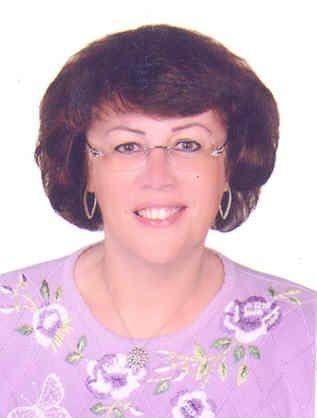 In an interesting article in the Guardian Weekly of October 16, 2012 (“How Useful is TESOL Academic Research?“), Penny Ur asks an important question about TESOL academic research for classroom teachers. She acknowledges the gap between classroom practice and research, stating that the source of professional learning for most teachers is from their classroom experience and interaction with students as well as discussions with their colleagues. Teachers are busy people and have little time to read research. She notes that a lot of the research focuses on language acquisition and rarely deals with pedagogical issues such as effectiveness of different types of exercises or classroom management. Read More. In an interesting article in the Guardian Weekly of October 16, 2012 (“How Useful is TESOL Academic Research?“), Penny Ur asks an important question about TESOL academic research for classroom teachers. She acknowledges the gap between classroom practice and research, stating that the source of professional learning for most teachers is from their classroom experience and interaction with students as well as discussions with their colleagues. Teachers are busy people and have little time to read research. She notes that a lot of the research focuses on language acquisition and rarely deals with pedagogical issues such as effectiveness of different types of exercises or classroom management. Read More.
|
|
Google+ Education: Part 2, by Tara Arntsen
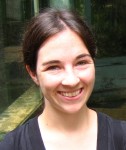 Back when I talked about participatory cultures in a post entitled Moving Education Online, I mentioned Google Sites as a resource for teachers. Google Sites is great because you can easily make a class website using the template called Classroom site. While building a website from scratch is intimidating for many, creating a website from this Google Sites template is not hard as there are directions for customizing the various sections. Some sections included in the template are homework assignments, contact me, class announcements, reading list, class photos, and word of the week. If you don’t need a section, just delete it! It’s that simple. Read More. Back when I talked about participatory cultures in a post entitled Moving Education Online, I mentioned Google Sites as a resource for teachers. Google Sites is great because you can easily make a class website using the template called Classroom site. While building a website from scratch is intimidating for many, creating a website from this Google Sites template is not hard as there are directions for customizing the various sections. Some sections included in the template are homework assignments, contact me, class announcements, reading list, class photos, and word of the week. If you don’t need a section, just delete it! It’s that simple. Read More.
|
TESOL Bookstore

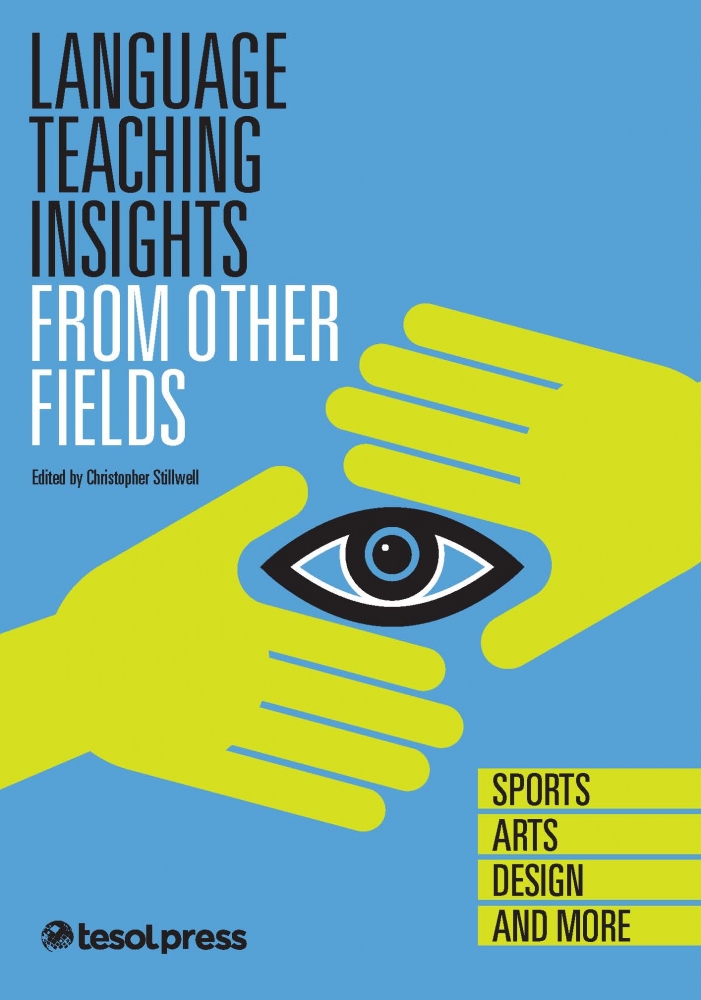 Treat Yourself to a Book Full of Surprises!
Treat Yourself to a Book Full of Surprises!
Language Teaching Insights
From Other Fields:
Sports, Arts, Design, and More
This book is a fun read and full of practical tips from language teachers who bring their insights to the classroom from extensive experience in other fields.
How would a restaurant reviewer critique an essay? How would a martial arts master facilitate language practice? How would a bartender create a supportive environment for learning? And how would a social activist promote critical thinking in the classroom? Answers to these questions and more translate into new ways of thinking about teaching and the classroom.
"The authors provide much, much more than the “insights” promised in the title. Each chapter is fascinating, inspiring, refreshing, and intellectually stimulating. I would select it for an ESOL methods course. Buy this book!" (John F. Fanselow, Professor Emeritus, Columbia University Teachers College)